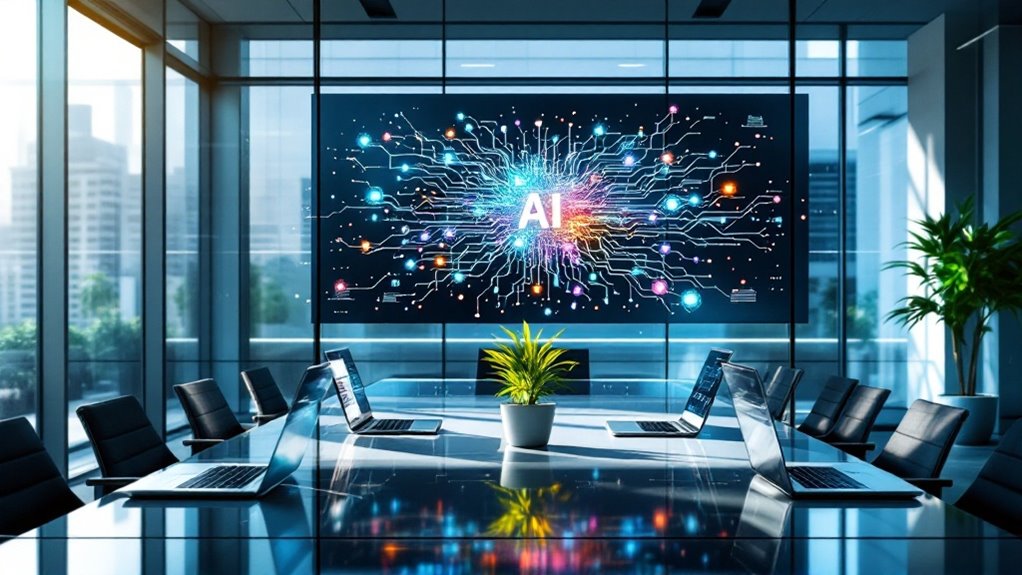Implementing responsible AI isn’t just ethical window-dressing—it’s smart business. Organizations that prioritize transparency, fairness, and accountability build genuine trust with customers (who, shocker, don’t enjoy being discriminated against by algorithms). Strong governance frameworks protect you from PR nightmares and regulatory headaches while attracting top talent who’d rather not work for the next tech villain. Plus, as privacy regulations evolve faster than superhero movie releases, you’ll stay ahead of compliance curves. The competitive advantages might surprise you.
Transparency in AI isn’t just corporate jargon. It’s what separates the “we promise this algorithm isn’t biased” companies from those actually doing the work. Explainable systems help stakeholders understand decision logic, which—surprise!—makes people more likely to trust your fancy robot brain when it’s not operating as a mysterious black box.
The fairness factor can’t be overstated. Nobody wants to be the company making headlines for an AI system that discriminates against certain groups. It’s 2023, folks—algorithmic bias detection should be as fundamental to your AI pipeline as testing is to software development. Your customers, employees, and legal team will thank you.
Speaking of legal teams, they’re particularly fond of accountability structures. Clear governance frameworks aren’t just bureaucratic hurdles—they’re safety nets when things inevitably go sideways. When (not if) something goes wrong, having documentation and traceability means you won’t be left shrugging your shoulders like a confused emoji. Implementing a human-centered design approach ensures your AI systems prioritize user needs and experiences throughout development. Non-compliance with responsible AI practices can result in substantial financial losses averaging nearly six million dollars per incident.
Privacy and security protections aren’t optional extras either. Consumers have become increasingly savvy about their data rights, and regulations keep multiplying faster than streaming service subscriptions. Risk mitigation strategies are essential for protecting both users and organizations from potential harm caused by AI systems. Organizations implementing robust protections gain competitive advantage in a marketplace where trust is currency.
The business case for responsible AI extends beyond avoiding fines and public relations nightmares. Companies with ethical AI practices attract top talent, build stronger brand loyalty, and position themselves advantageously for future regulatory landscapes.
Remember when social media seemed like harmless fun before we realized its societal impacts? AI is tracking the same trajectory but at hyperspeed. Organizations that prioritize responsible practices now won’t just minimize harm—they’ll be building the foundation for sustainable AI adoption that actually delivers on its world-changing promises.









